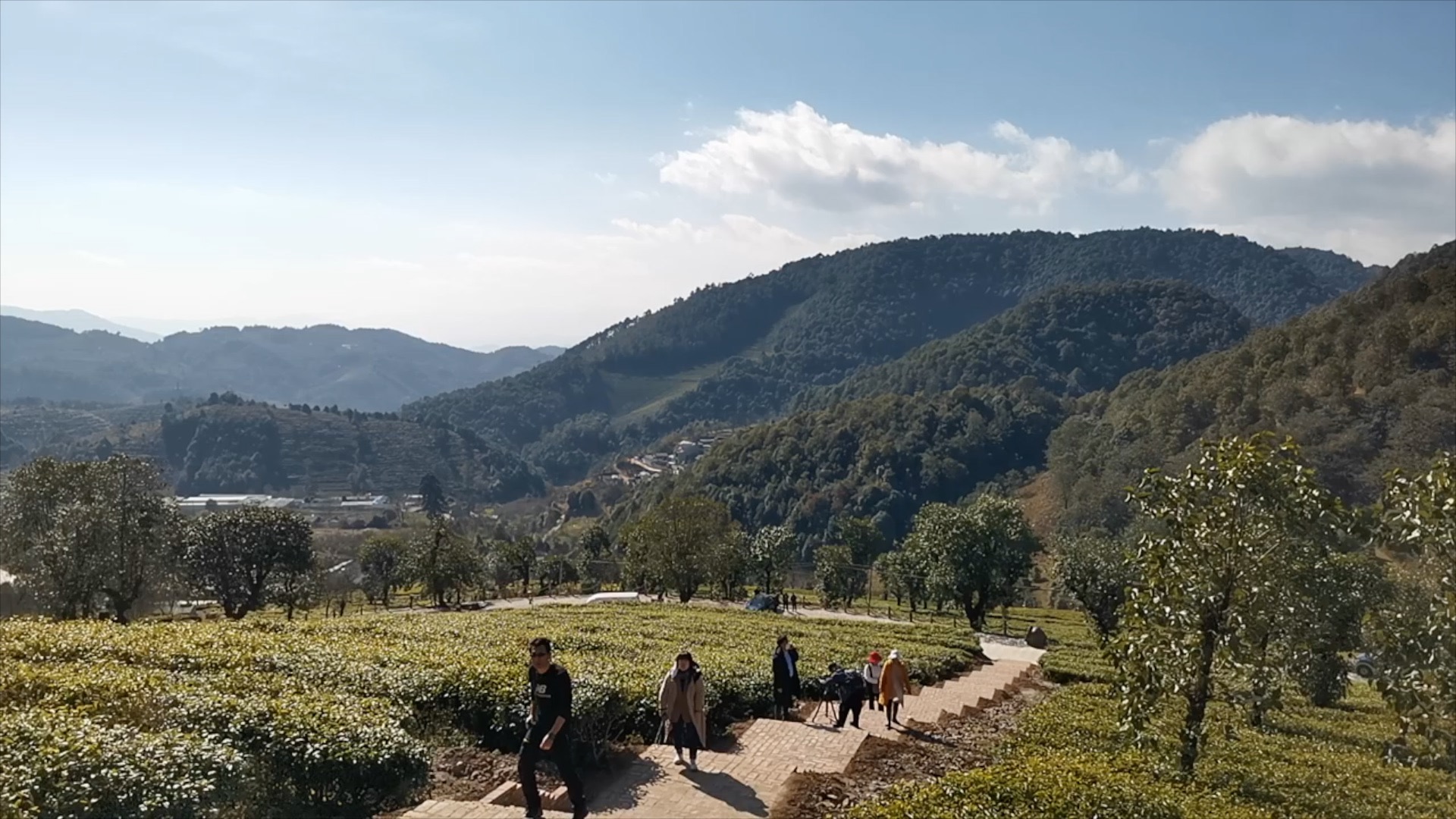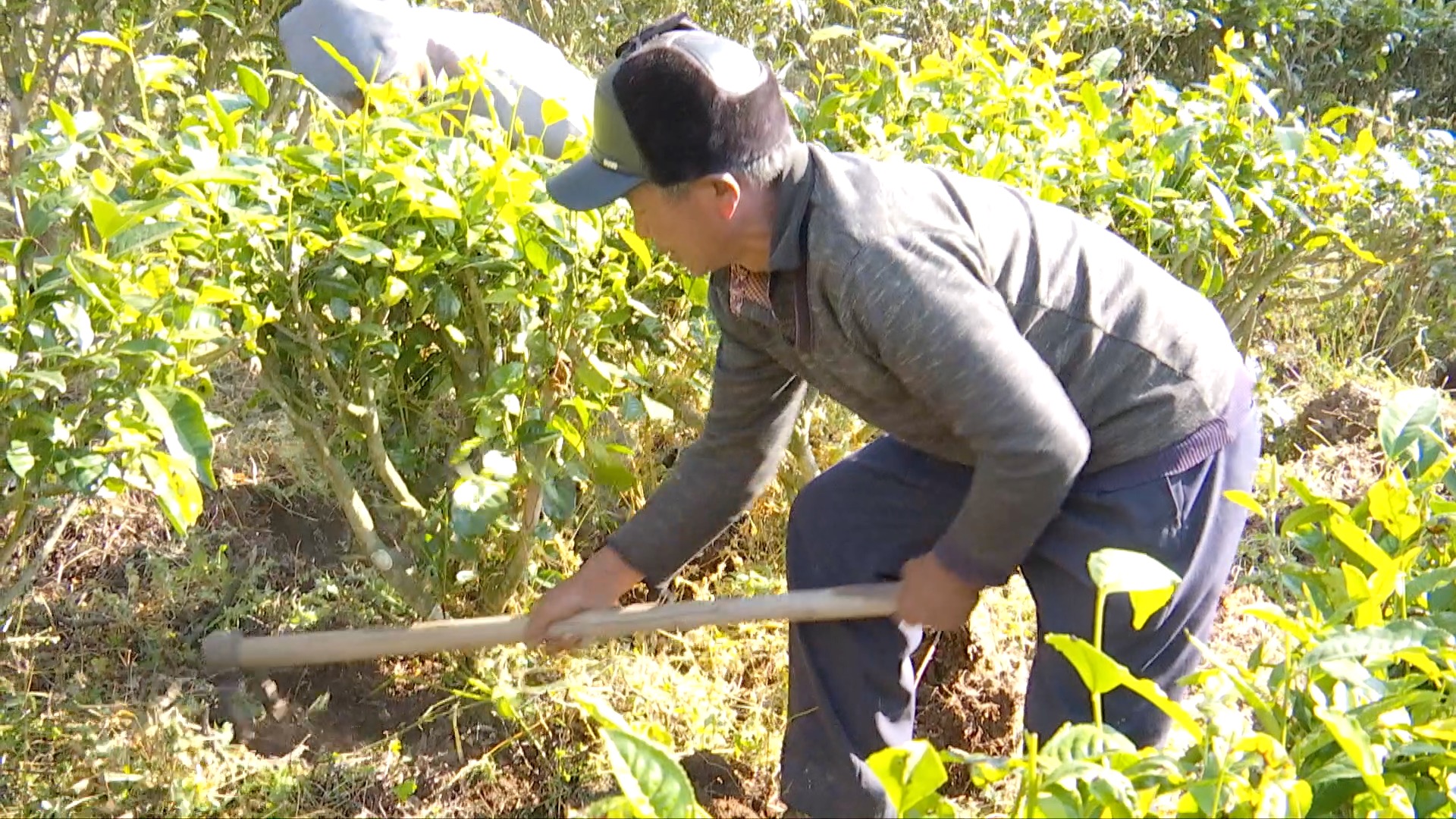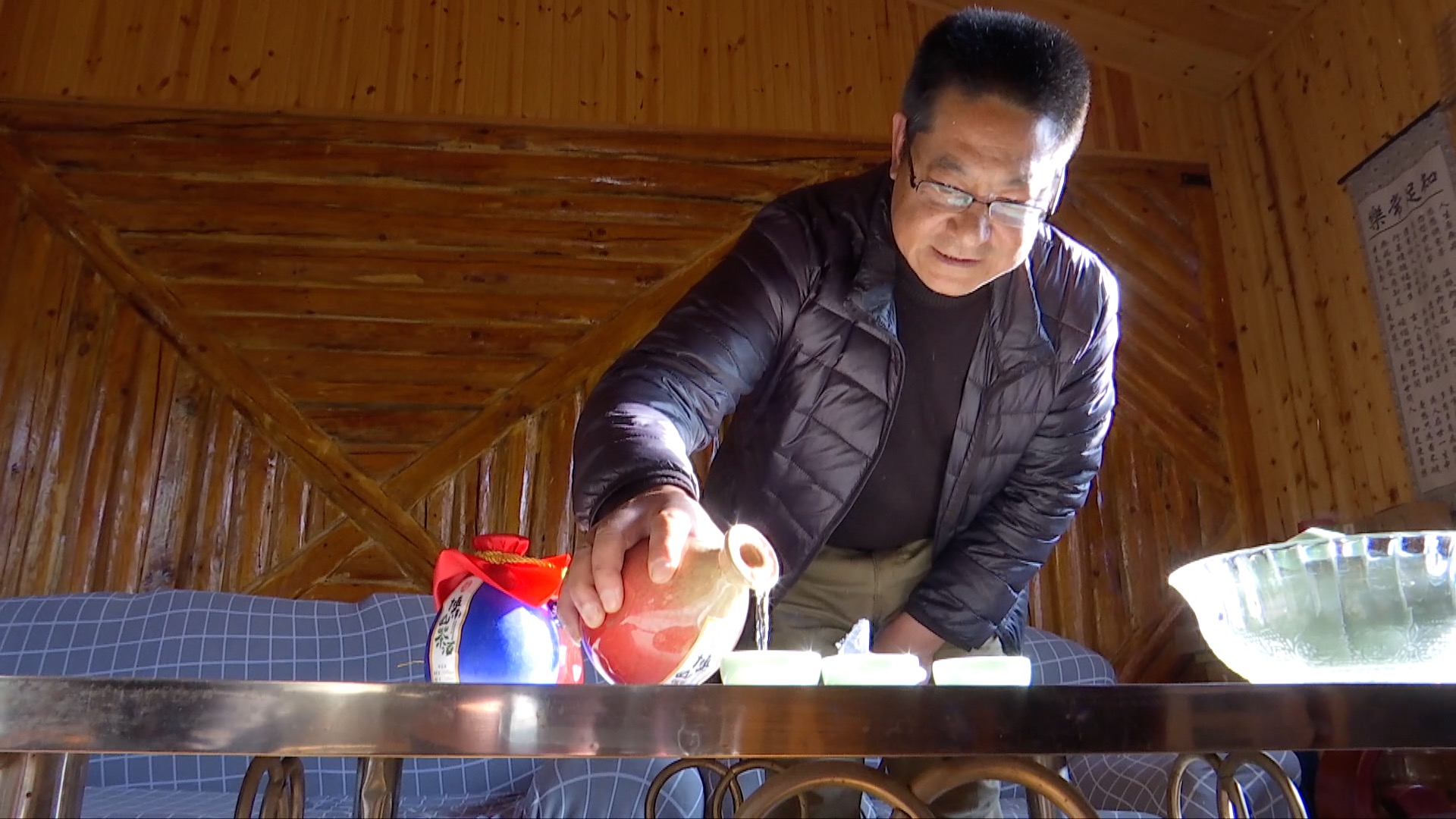02:47

A vast green sea made of tea bushes, blue sky above your head, mountains and fresh air, it's definitely a refreshing and relaxing experience to visit Dapingtan's tea plantation, which is said to have the shortest distance from the sky.
Located in the Dali Bai Autonomous Prefecture in southwest China's Yunnan Province, the tea plantation has an average altitude of 2,400 meters, which is over 60 times higher than China's capital city Beijing. The main kind of tea grown there is Foxiang 9, which fits well with the natural conditions.
However, 16 years ago, they did not have the tea field or a good income. With a strong determination and lots of work, the village's leaders persuaded the residents to try tea instead of growing traditional crops like corn, Tartary buckwheat or potatoes because they thought it could be a road toward better lives. With 78.6 percent of the land covered by forests and a mountainous landscape, the area is not suitable for creating a well-off life from farming traditional crops.
Now, except for three households, all 266 families in the community grow tea and have secured a better life. Almost all the land not covered by forests is used to plant tea, and all of the families now live above China's national poverty line.

A farmer hired temporarily from a nearby village removes weeds in a tea field in Dapingtan Village, Longmen Township, Dali Bai Autonomous Prefecture, southwest China's Yunnan Province, December 10, 2020. /CGTN
A farmer hired temporarily from a nearby village removes weeds in a tea field in Dapingtan Village, Longmen Township, Dali Bai Autonomous Prefecture, southwest China's Yunnan Province, December 10, 2020. /CGTN
The community further advanced the business by bringing in corporations to make an industry out of tea.
The companies received rights to use farmers' land that was not in use to build a tea base. Today, there are altogether three companies in the village. The companies have set up tea processing factories with seven production lines that make various tea products, including green, black, yellow and Pu'er tea. The total investment of fixed assets has reached 41 million yuan ($6.28 million).
The local authority also hosts a tea festival every year as part of its strategy to promote its tea industry, the Dapingtan tea brand and develop the region's tourism economy based on the tea sector. They also plan to plant some cherry trees in the tea field in the near future to create a beautiful view to attract tourists, a local official told CGTN.
Meanwhile, some villagers have taken the initiative to explore tourism services. One local, Dong Shiqi, was the first to open a homestay in 2018 after returning home, following a decade working in other cities.
He said he can earn around 200,000 yuan annually from his inn and tea plantation, which is double his income when he earned a living elsewhere. It is an acceptable income, even for many in urban Chinese cities.
Tea is a big draw in his homestay. Guests can go harvest tea themselves and enjoy 18 different tea dishes Dong and his family created in addition to the local cuisine. What's more, they can taste a special local baijiu (Chinese white liquor) brewed with tea.

Homestay owner Dong Shiqi pours tea-based baijiu he brewed for some guests at his inn in Dapingtan Village, Longmen Township, Dali Bai Autonomous Prefecture, southwest China's Yunnan Province, December 10, 2020. /CGTN
Homestay owner Dong Shiqi pours tea-based baijiu he brewed for some guests at his inn in Dapingtan Village, Longmen Township, Dali Bai Autonomous Prefecture, southwest China's Yunnan Province, December 10, 2020. /CGTN
"I didn't expect this at all. I was born and raised here, but I'd never have thought of the changes I see now," Dong said.
Four or five families have followed in his footsteps to open homestay businesses, and some are from the Yi ethnic group, which accounts for a majority of the residents in the village, according to Dong.
Though his homestay needs more investment to expand, he said the number of visitors last year sent a positive signal. He said the whole village had over 30,000 visitors last year, with his homestay receiving up to 10,000.
Dapingtan means "flat ground" in Chinese, but the landscape there is quite the opposite. Yet, it could be metaphoric, relating being able to achieve success like walking effortlessly on a smooth road.
(Cover: Dapingtan Village's tea bases in Longmen Township, Yongping County, Dali Bai Autonomous Prefecture, southwest China's Yunnan Province, December 10, 2020. /CGTN)

